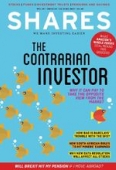Archived article
Please note that tax, investment, pension and ISA rules can change and the information and any views contained in this article may now be inaccurate.
Funds to hitch a ride on the FTSE 250 rally

Britain’s mid cap companies have been on a scorching run since investors stopped panicking about the Brexit vote in June 2016.
The FTSE 250 index has soared by more than 30% in the past 12 months, chalking-up a new record along the way – closing at 20,024.92 on 26 May 2017.
Yet recent events suggest that this may be a sensible time to re-evaluate the space.
On 12 June data from Visa showed UK consumer spending declined for the first time in nearly four years.
Furniture seller DFS (DFS) issued a profit warning on 15 June, compounding weak UK retail sales in general for May. There was also poor data from the Coffer-Peach tracker survey of UK pubs and restaurants.
‘There is a very long list of small and mid cap companies that would be exposed to a broader economic slowdown in the UK,’ point out analysts at investment bank Berenberg in a note on the UK mid cap cross-sector note published earlier in June.
Reading between the lines
There has also been negative commentary recently from the UK home renovation, maintenance and improvement space. Double-glazing firm Safestyle (SFE:AIM) has flagged weak installations data, while Topps Tiles (TPT) posted poor like-for-like numbers on 23 May. They showed first half sales declines of 1.9%, and a 5.8% contraction over the seven weeks to 20 May 2017.
Neither of these companies are FTSE 250 members, but many constituents of that index are exposed to the domestic market. That is in contrast with the FTSE 100, for example, which generates about 70% of its average revenue overseas.
Importantly, many investors will have exposure to mid cap companies and the FTSE 250, perhaps through pensions, trackers funds or specific stocks directly owned.
While most will not specifically home in on this part of the stock market, there are investment trusts options for those that want it.
The challenge for fund managers is to now find the most resilient companies to outperform a tougher market backdrop.
FTSE 250 specialists include Schroder UK Mid Cap (SCP) and JPMorgan Mid Cap Investment Trust (JMF), which both benchmark versus the FTSE 250. There is also the Mercantile Investment Trust (MRC) and although it has a wider investment remit and benchmark’s against the FTSE All Share index, the mid caps space is meaningful in its portfolio. All of its top 10 biggest holdings are FTSE 250 companies.
Portfolio diversity
What is interesting about these three trusts is the wide variation of stocks in each of their top 10 lists. Meals delivery website Just Eat (JE.), specialist asset manager Intermediate Capital (ICP) and packaging company DS Smith (SMDS) – which Shares looked at in detail on 27 April – are shared by JPMorgan Mid Cap and Mercantile. Both are managed by JPMorgan Asset Management, although the portfolios are run by different fund managers.
JPMorgan Mid Cap also shares an interest in property website Rightmove (RMV) with Schroder UK Mid Cap, but there is limited duplication overall. This implies that the management teams of each trust have different ideas about investment themes and opportunities.
Performance tests
This difference is borne out by the relative performances of each trust over different time frames. All three trusts have managed to outperform the FTSE 250’s return over the past three months, but beyond that, performance varies, which implies vagaries within the stock selection process. JPMorgan Mid Cap, for example, compares poorly against the FTSE 250 on a one year view, yet has been the best of the bunch over three and five year periods.
Long-term returns (over 10 years) show Schroder UK Mid Cap knocking the ball out of the park; JPMorgan Mid Cap does the same over five years.
Shares in Schroder UK Mid Cap, at 503.5p, are currently trading at a 15.6% discount to net asset value (NAV). Mercantile Investment Trust’s equivalent discount stands at 12.8%, based on a £19.21 share price, while JPMorgan Mid Cap’s discount is the narrowest of the trio at 9.96%, on a £10.38 share price.
Important information:
These articles are provided by Shares magazine which is published by AJ Bell Media, a part of AJ Bell. Shares is not written by AJ Bell.
Shares is provided for your general information and use and is not a personal recommendation to invest. It is not intended to be relied upon by you in making or not making any investment decisions. The investments referred to in these articles will not be suitable for all investors. If in doubt please seek appropriate independent financial advice.
Investors acting on the information in these articles do so at their own risk and AJ Bell Media and its staff do not accept liability for losses suffered by investors as a result of their investment decisions.

 magazine
magazine










